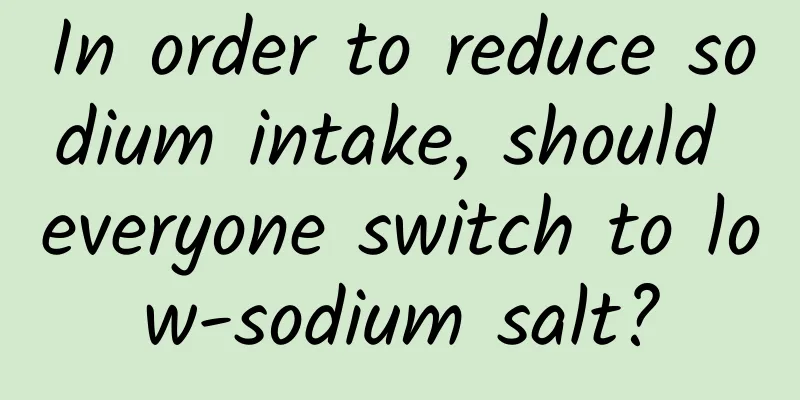Paraquat not only dries up the grass, it may also dries up your lungs

|
This is the 5103th article of Da Yi Xiao Hu On July 30, 2024, the Australian Pesticides and Veterinary Medicines Authority (APVMA) re-evaluated paraquat and diquat, and both were not supported in 90% of the application scenarios in Australia. my country also revoked the registration and production license of paraquat aqueous solution and stopped production on July 1, 2014, but retained the registration of aqueous solution for export overseas by the parent drug manufacturer and allowed production exclusively for export. On July 1, 2016, the domestic sales and use of aqueous solution was stopped. Why has paraquat, a colorless, odorless, and highly effective herbicide, been gradually eliminated from the world's mainstream stage in recent years? Because of its toxicity, which is still unavoidable! The poison of paraquat is 1. It is extremely toxic to humans 2. There is no specific antidote, the death process is painful, and there is really no cure 3. The mortality rate of oral poisoning is extremely high, the legendary 99% mortality rate. Some people joked that out of ten people who drank paraquat, nine died, and the other one drank fake paraquat. Generally speaking, if 5 to 10 ml of 20% paraquat concentrate is taken orally, it is almost 100% fatal if rescue is not timely. How much is 5 ml? It is just the amount of a mineral water bottle cap. Quoting the original words of a poisoned person, "It is like a drowning person. No matter how hard he tries, he can only watch himself sink to the bottom of the water. People in the late stage of paraquat poisoning gradually lose their breath while awake, and eventually suffocate to death. ... Drinking paraquat is like waiting to be buried alive. The mouth and throat have rotted and cannot speak, and the lungs can't breathe." Paraquat treatment At present, the rescue treatment of paraquat is only a remedy. There is no cure yet. Either the entry of poison is reduced, or the damage to organs throughout the body is slowed down. 1) Clean skin and oral residues 2) Fluid therapy, hemoperfusion 3) The respiratory tract is the most seriously affected, and pulmonary fibrosis is very likely to occur, leading to respiratory distress. Oxygen and mechanical ventilation should be used as soon as possible. 4) Digestive tract: Temporarily prohibit eating and drinking, place a gastric tube, perform gastrointestinal decompression, and use gastric mucosal protective agents to prevent stress ulcer bleeding. 5) Drugs: Propranolol can compete with the poisons bound to the lungs. High-dose cyclophosphamide and dexamethasone prevent pulmonary fibrosis. Desferrioxamine and N-acetylcysteine therapy. There is no specific antidote. 6) Monitor liver and kidney function and blood oxygen levels. Since paraquat poisoning can cause devastating damage to the lungs, is it possible to get a lung transplant? Everyone is curious about whether there are successful lung transplants for patients with paraquat poisoning. Looking back at the clinical data of a paraquat poisoning lung transplant patient completed by Guangzhou Medical University in 2017, a 26-year-old female patient in her prime ingested 20ml of 20% paraquat solution when she was admitted to the hospital. On the 58th day of poisoning, she underwent a double lung transplant under general anesthesia. The lungs removed during the operation showed extensive pulmonary fibrosis in both lungs. Fortunately, the operation was successful. This was also due to the advancement of extracorporeal membrane oxygenation (ECMO) and blood purification technology. After all, only a few people can undergo lung transplantation. When there is a shortage of lung organs, are there any other treatments? Lung transplantation is the only effective treatment for end-stage lung disease, but the organ shortage crisis requires the development of alternative therapies. Mesenchymal stem cells (MSCs) and hepatocyte growth factor (HGF) have been shown to partially reverse this damage. Mesenchymal stem cells can be derived from bone marrow (BM-MSCs), adipose tissue (AD-MSCs), umbilical cord (UC-MSCs), dental pulp (DPSCs) and other sources. This type of research has mainly seen the dawn of hope in rat experiments: human amniotic mesenchymal stem cells (hAMSCs) have a therapeutic effect on paraquat (PQ)-induced rat pulmonary fibrosis. There are also studies suggesting that immature fetal lung tissue can improve the survival rate of mice with severe lung injury caused by PQ, and anti-inflammatory cytokines in fetal mouse lung tissue on embryonic day 13.5 may inhibit severe lung injury. Although these experiments have not yet been applied to clinical practice, they are already a very promising future treatment direction for pulmonary fibrosis caused by PQ poisoning. Author: Putuo District Central Hospital Department of Respiratory Medicine Shi Zhaowen, deputy chief physician |
>>: How clean should you be when taking a shower?
Recommend
Where should the uterus warming patch be placed?
Due to various work pressures, unhealthy lifestyl...
Early pregnancy test paper one dark and one shallow picture
As a convenient product for women to test whether...
Can I have sex if I have irregular menstruation?
Menstruation is a normal physiological phenomenon...
The harm of washing your hair on the second day of your period
There is a topic that is quite controversial, whi...
【6.6 National Eye Care Day】Preventing myopia among young people and making the world more beautiful
Today is the 28th National Eye Care Day, and this...
Why do my eyelids swell up in the morning? How to prevent my eyelids from swelling up in the morning
Experts say that people who stay up late for a lo...
World Food Safety Day | Will you get "lychee disease" if you eat lychees on an empty stomach? Will you get a "beer belly" if you drink beer regularly? The truth is...
There are many popular myths about food health, a...
Irregular menstruation and thick endometrium
A woman's uterus is very important to her. An...
How to Treat Candida Vulvitis
Candidal vulvitis is a disease unique to women. I...
Ovulation temperature measurement method
For mothers who are already pregnant, they have t...
The second line of the pregnancy test paper is very light
During the pregnancy preparation period, women ho...
What does it mean when a woman's right eyebrow twitches?
A woman's right eyebrow twitching may be caus...
Where is the breast located?
Breasts are a secondary sexual characteristic of ...
A woman dreams of spitting
We should all be familiar with the phrase "p...
Can I drink soda during early pregnancy?
There is a kind of water on the market, that is s...









